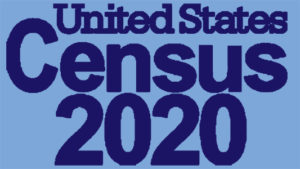 Mayor Eric Garcetti of Los Angeles recently joined a conversation with the Mayor’s Interfaith Collective, representatives of the city’s faith communities, to ask their assistance in telling their members about resources on two vital topics: slowing the spread of coronavirus and the urgent need to respond to the 2020 U.S. Census. Canon Bob Williams, canon for Common Life, represented the Diocese of Los Angeles at the virtual meeting.
Mayor Eric Garcetti of Los Angeles recently joined a conversation with the Mayor’s Interfaith Collective, representatives of the city’s faith communities, to ask their assistance in telling their members about resources on two vital topics: slowing the spread of coronavirus and the urgent need to respond to the 2020 U.S. Census. Canon Bob Williams, canon for Common Life, represented the Diocese of Los Angeles at the virtual meeting.
The Census is vital because its data is used to determine how federal grants are distributed in communities and how many representatives each state is allowed in the U.S. Congress. Garcetti and his staff shared the following resources:
- Video: L.A. Census – Why it matters to me (English)
- Census Bureau Video (Korean)
- Census flyers (English, Spanish, Chinese)
If a congregation is hosting a food bank or event before Sept. 30, the mayor’s office can provide census information to distribute or coordinate volunteers to assist in completing the census. Volunteers are needed to staff phone banks about the census or helping people respond in person. For information about volunteering, contact Veronica Polanco (veronica.polanco@lacity.org) or David Price (david.price@lacity.org) of the mayor’s staff.
So far, only 53.4% of Angelenos have been counted for the Census, if this rate continues, the city will receive only a small percentage of the federal funding to which it is entitled for necessary program, such as Medicare, Section 8 housing, and Title 1 education. The federal funding is necessary, Garcetti said, for the city to provide vital services during the pandemic and for the economy to recover.
Other counties included in the Diocese of Los Angeles also have resources to assist in the census, which by federal law must count everyone resident in the United States, regardless of citizenship or immigration status:
- Orange County resources
- Ventura County resources (in English, Spanish, Tagalong)
- Santa Barbara County resources
- Inland Empire (San Bernardino and Riverside counties) resources
- Los Angeles County resources
During the meeting, Garcetti and his staff shared some statistics about the spread of COVID-19 in the city:
- Data shows communities with the lowest Census response rate are the same communities most impacted by COVID.
- Communities of color are suffering disproportionate rates of infection and some of the highest rates of death per capita in our county.
- Some lower-income neighborhoods in central Los Angeles are losing more than 40 people to COVID per 100,000, a rate four times higher than the county as a whole.
- Fewer African Americans, Latinos, and Asian Americans have the option of working from home or taking time off work.
- People in these communities have higher rates of chronic conditions, like diabetes, obesity, and heart disease, than the general population.
A Covid Equity flyer is available in English, Spanish, and Korean. Los Angeles is providing critical assistance protections to the most vulnerable through:
- L.A. Emergency Child Care Connection offers child care resources and services to City of L.A. emergency responders.
- COVID-19 College Connect, a partnership with L.A. Compact to support students with a counselor from their accepted college, high school, or a nonprofit partner to help navigate this process.
- L.A. Represents is a legal assistance initiative to help thousands of Angelenos who are facing extreme hardship due to the COVID-19 pandemic.
- A ban on evictions due to failure to pay rent related to COVID-19, and the nation’s largest Emergency Rental Assistance Program to assist those who have been economically affected by the COVID-19 health crisis and their landlords.
- L.A. Jobs Portal, which enables unemployed or underemployed Angelenos to find and apply to job opportunities across all industries.
